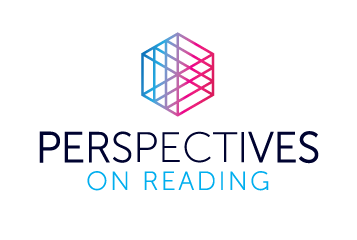Life got you down? Try reading more

By Marcia Divack, Librarian | October 2019
James never considered himself a reader. As a matter of fact, he states that he was 27 years old the first time he read a book without being required to for school. He was working in a clothing store at the local mall, and one day during lunch he visited a friend who worked in the bookstore. He saw a book and liked the cover, so he bought it. That book would not only change his outlook on reading, but his career trajectory as well.
Once James became what he considers a “reader,” he was more focused, less stressed and felt far more confident in his daily life. He also describes himself after becoming a reader as having the courage to pursue his dream career. He is now a senior staff writer at a major newspaper, and he credits that fateful day in the bookstore for changing his life.
If you’re like James was and don’t consider yourself a reader, don’t be too hard on yourself, because you’re not alone. Americans are reading less than ever, and there are numerous studies to support this, including the American Time Use Survey conducted by the U.S. Department of Labor, Bureau of Labor Statistics, and the Pew Research Center’s study of American reading habits. In fact, the time use survey measured a decline of over 30 percent since 2004, meaning only 19 percent of Americans over the age of 15 read for leisure daily.
While the statistics are both interesting and jarring, they are largely unnecessary, because the decline is happening in plain sight, in households across the country, even my own. I have also observed this trend in my work as a librarian, mostly among adults. Very often I see adults checking out books for their children, yet none for themselves. As a librarian, I regularly suggest books I think adults might enjoy, yet I receive the same response nearly every time, “I don’t read, I don’t have the time.”
After observing so many adults not checking out books and stating that they do not read, I chose to do some research, not simply to find out why adults aren’t reading, but to find out why they should be reading. The Pew findings state that nearly one quarter of Americans have not read a book, or even part of a book, in the past year. This includes print books as well as ebooks and audiobooks. A Gallup Poll also shows that the number of people not reading even a single book in a year tripled between 1978 and 2014. The time use survey further indicates that people who are employed full-time read less than people who are unemployed or only work part-time. Moreover, it shows that households with lower annual incomes are less likely to produce regular leisure readers than those with higher incomes. The study also illustrates that college educated adults are more likely to leisure read than those without a degree, but it is a minimal increase at best. Women statistically spend more time reading than men. However, women’s reading has declined recently as well.

There are many theories to suggest why there has been such a steep decline in leisure reading over the past decade, including more time spent browsing the internet and a large increase in social media usage. Studies, including the Pew and time use surveys also suggest that the recent increase in the work force has contributed to the reading decline, supporting the data that those who are unemployed read more than those who are employed. However, the most widely supported theory, which is actually more fact than theory, is increased TV viewing. Before we rush to condemn Netflix and Hulu, this increase in television viewing began in the 1980s and has increased steadily ever since, with each new generation, e.g. Millennials and Gen Z, spending more time in front of the small screen than the previous one. The solution, then, seems simple enough: Cutting down on TV screen time will make more time for reading. This is ultimately easier said than done of course, particularly if there is no perceived benefit to spending more time reading. Fortunately, there are numerous benefits to reading, all of which could easily reverse the decline.
A study conducted at Emory University has shown that reading, especially fiction reading, improves brain connectivity and function. According to the study, reading fiction can convince the body that it is actually experiencing what the characters in the story are experiencing. This is known as grounded or embodied cognition. Grounded cognition can be explained this way: If I read a chapter in a novel that describes a character rowing a canoe, the neurons in my brain that are involved in the rowing of a canoe are activated, making me feel what the novel’s protagonist is feeling. While this feeling is immediate, or rather happening while I’m reading it, the grounded cognition can persist for hours or even days after I finish reading it. The benefits of this are twofold. While it may not make me or another reader physically stronger, it can make me or them more empathetic. In simple terms, reading about something a character in a novel is experiencing can help us understand someone else’s point of view and make us more aware of the experiences of others. This in turn can make us more compassionate. Moreover, as shown in the Emory University study, reading can also improve imagination and help us to be more creative and more intuitive.

Another study conducted by the University of Liverpool indicates that reading can actually improve overall well-being. The Liverpool University study shows that reading helps in several ways. First, it can improve mood and relaxation. One of the ways that reading improves mood is that it can simply make the reader think about something else. In other words, if I am feeling angry or sad, picking up a book and reading about someone or something else can help me forget about, at least temporarily, whatever it was that was negatively impacting my mood. The study further showed that reading was more relaxing than watching TV. Reading also proved to be far more relaxing than using social media, which studies have linked to increased agitation and overall dissatisfaction.
Reading can help increase resilience, with regular readers reporting a better ability to cope with stressful or difficult situations. While it may seem strange to think that reading can lead to increased resilience, the Liverpool study described it this way: Readers are more likely to recognize that setbacks and difficult situations are unavoidable, yet temporary, aspects of life. Most of us who have read novels, or even nonfiction, have encountered characters who faced and then overcame terrible situations and even trauma. This is evident in our favorite fairy tales in which children vanquish their tormenters and emerge stronger than ever.

Finally, reading improves our connectedness according to the Liverpool study. This increased connectedness comes from a better ability to communicate and sympathize with others through improved social awareness and an enhanced appreciation of cultural diversity. This can easily translate into a better work experience, too. Feeling more confident can lead to improved teamwork, better collaborations and a more comfortable work environment. In addition, reading improves vocabulary, spelling, comprehension, deductive reasoning, logic, and memory, thereby leading to improved home and work lives, as well as greater satisfaction and decreased agitation. Ultimately, the studies suggest that reading can make us better. It can make us more empathetic, more connected and more prepared to face life’s inevitable challenges.
Knowing how reading benefits us, we should now work to find ways to incorporate reading into our daily lives. Rather simply put, we need to make time for reading. That may sound daunting, but it need not be if it is made part of a daily routine, and especially because a study conducted by the University of Sussex shows reading for as little as six minutes per day is enough to reap the benefits. [1] With so much of our lives already scheduled, it is not so unrealistic to set aside some time each day for reading. As a librarian and as a reader, I recommend finding simple ways to include reading, such as reading at the same time every day; on the bus or train on the way to and from work, at lunchtime, at bedtime or after dinner. It is also best to read what makes you happy, not just what is popular or trendy. A study conducted by Washington University in St. Louis shows it is beneficial to share what you are reading, so joining an online discussion group or a book club, or simply writing and posting book reviews to your social media accounts can bolster comprehension, memory and feelings of accomplishment and inclusion.
Set aside some time today and begin enjoying the many benefits of reading.
References
- Lewis, D. (2009), Galaxy Stress Research. Mindlab International, Sussex University, UK.


